FloraMac’s headquarters will be the Council Insular building at San Sebastián de La Gomera (link-google maps). The keynote speakers and oral sessions will be held in the Auditorium, inside this building, while the poster sessions in a next room.
SCHEDULE
AUDITORIUM
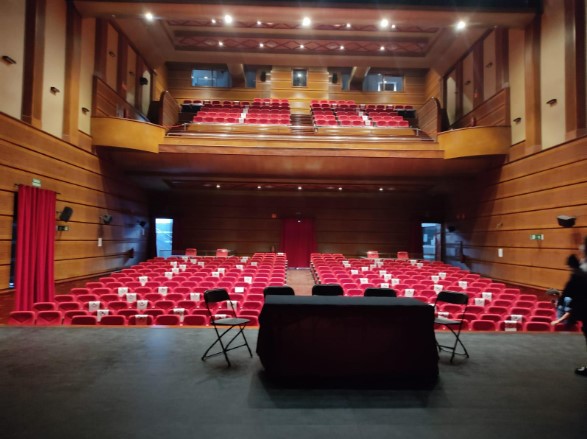
POSTER ROOM
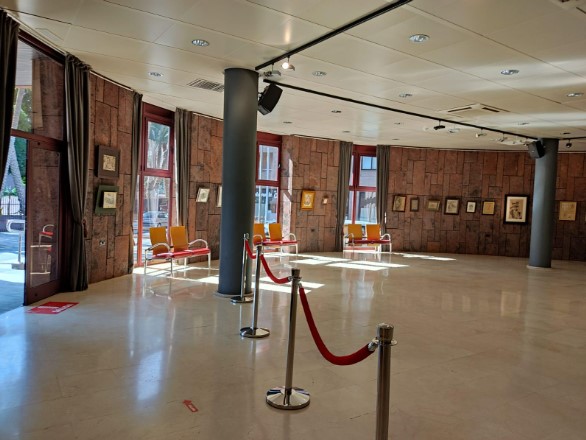
SESSIONS
| Monday, 12th September 2022 | |
| 8:00-onwards | Registration |
| 9:00-9:30 | Opening |
| 9:30-10:00 | Introduction to the flora and vegetation of La Gomera and its conservation. Ángel Fernández |
| 10:00-11:00 | Key note: Coralline red algae of the Macaronesian region: uniqueness and biogeographical relationships. Viviana Peña |
| 11:00-11:30 | Coffee break |
| Session: Island biogeography – colonization and diversification | |
| 11:30-11:45 | Trait-dependent diversification and biogeography of Canary Island angiosperms: a community-wide approach. Ryan Brewer et al. |
| 11:45-12:00 | No country for the ubiquitous: The origins and diversification of the Canarian endemic plants considered to be distributed in all islands. Juli Caujapé-Castells et al. |
| 12:00-12:15 | Patterns of diversification and colonization in Macaronesian Apiaceae lineages: Ecological and cytogenomic approach. Guilherme Roxo et al. |
| 12:15-12.30 | Similar, yet different: contrasting macro and microevolutionary histories in the Canarian endemics Kleinia neriifolia and Euphorbia balsamifera. Mario Rincón-Barrado et al. |
| 12:30-12:45 | Inter-island colonization and evolutionary processes in the Canarian endemic genus Parolinia Webb (Brassicaceae): implications for conservation in a biodiversity hotspot. Miguel Á. González-Pérez et al. |
| 12:45-13:00 | Evaluation of BEAST2 substitution rate-based calibration models as an alternative to the widely used fossil-based models in an automated pipeline to compute divergence times in the Macaronesian flora. Antonio Díaz-Pérez et al. |
| 13:00-14:30 | lunch break |
| 14:30-15:30 | Key note: Island syndromes and Macaronesian plants. Carlos García-Verdugo |
| Session: Island biogeography – patterns and processes | |
| 15:30-15:45 | Patterns and drivers of beta diversity across geographic scales and lineages in the Macaronesian flora. Lea Mouton et al. |
| 15:45-16:00 | The evolution of insular woodiness. Frederic Lens et al. |
| 16:00-16:15 | Island disharmony of the bryophytes community of Macaronesia. Sébastien Mirolo et al. |
| 16:15-16:30 | Diversity of useful plants in Cabo Verde islands: a biogeographic and conservation perspective. Isildo Gomes et al. |
| 16:30-16:45 | Biogeographic origins and drivers of alien plant invasions in an oceanic archipelago. Jairo Patiño et al. |
| 16:45-17:00 | Source areas and dispersal patterns within the Macaronesian flora. José María Fernández-Palacios et al. |
| 17:00-17:30 | coffee break |
| 17:30-19:00 | Poster session |
| Tuesday, 13th September 2022 | |
| 9:00-10:00 | Key note: Predicting the distribution of macroalgae in a changing climate. Brezo Díaz-Caneja |
| Session: Plant ecology – community dynamics | |
| 10:00-10:15 | Soil properties, but not biodiversity facets, mediate productivity in the Canary Islands and mainland Spain. Maria L. Tolmos et al. |
| 10:15-10:30 | Differences in soil bacterial and fungal community structure between natural, production forest and exotic woodland, as revealed by metabarcoding in an Atlantic Island. Ângela Vieira et al. |
| 10:30-10:45 | Summit vegetation responses to cultural landscape transformations in the Teide National Park, Tenerife, Canary Islands. Lea de Nascimento et al. |
| 10:45-11:00 | Phytoliths in modern plants from the Canary Islands as a reference for the reconstruction of long-term vegetation change and culture-environment interactions. Alvaro Castilla-Beltrán, Enrique Fernández-Palacios et al. |
| 11:00-11:30 | coffee break |
| Session: Plant ecology – the impact of climate change | |
| 11:30-11:45 | Quantitative wood anatomy of eight dominant tree species from Macaronesian laurel forests. María A. García-López et al. |
| 11:45-12:00 | Tree growth-climate relationship in the Azorean holly in a temperate humid forest with low thermal amplitude. Diogo Pavão et al. |
| 12:00-12:15 | Taxonomic, functional and phylogenetic diversity of bryophytes along an elevation gradient across an oceanic island (Madeira). Anabela Martins et al. |
| 12:15-12.30 | Climate change impact in laurel forests at Garajonay National Park. Luis A. Gómez et al. |
| 12:30-12:45 | Vulnerability of cloud forests to climate change: what can we learn from high-resolution climatologies in a topographically complex oceanic archipelago? Flavien Collart et al. |
| 12:45-13:00 | The geographic context rules the miniaturization and shift of Gongolaria abies-marina forests: fifty years of data reveal drastic changes in the organization of benthic communities. Carlos Sangil et al. |
| 13:00-14:30 | lunch break |
| 14:30-15:30 | Key note: Run forest, run! An ode to the importance of seed dispersal. Ruben Heleno |
| Session: Plant ecology – ecological succession and the associated mechanisms of adaptation | |
| 15:30-15:45 | The fate of vegetation during an oceanic island volcanic eruption (Tajogaite volcano, La Palma Island). María Guerrero-Campos et al. |
| 15:45-16:00 | First stages in shallow subtidal algal colonization of Tajogaite lava deltas (La Palma, Canary Islands). Daniel Álvarez et al. |
| 16:00-16:15 | Changes in antioxidant activity of fresh marine macroalgae from the Canary Islands during air-drying process. Marcos A. Ruiz-Medina et al. |
| 16:15-16:30 | Overview of more than twenty years of my geobotanical and geographical field research on Faial (Azores) – history, results and outlook. Christophe Neff |
| 16:30-16:45 | Impacts of volcanic eruptions on vegetation – Understanding the dominance of woody species and nitrogen fixers on oceanic islands. Carl Beierkuhnlein |
| 16:45-17:00 | First stages in intertidal algal colonization of Tajogaite lava deltas (La Palma, Canary Islands). Marta Sansón et al. |
| 17:00-17:30 | coffee break |
| 17:30-19:00 | Poster session |
| Wednesday, 14th September 2022 | |
| 9:00-14:30 | Excursion to Garajonay National Park |
| Excursion to the Valle Gran Rey coastline |
| Thursday, 15th September 2022 | |
| 9:00-10:00 | Key note: Current knowledge on Cabo Verde biodiversity: research lines and ongoing activities. María Romeiras |
| Session: Flora and vegetation – reproductive biology | |
| 10:00-10:15 | Floral development and reproductive biology of three of Macaronesian and Mediterranean species with contrasting pollination systems: Malva canariensis, M. wigandii and Navaea phoenicea (Malvaceae). Magui Olanga-Corral et al. |
| 10:15-10:30 | Breeding systems of Azorean endemic species: an overview. Guilherme Roxo et al. |
| 10:30-10:45 | Pollen-ovule ratios and breeding systems in Macaronesian taxa. Rosa Febles et al. |
| 10:45-11:00 | The gynodioecy – dioecy pathway from hermaphroditism in two Canarian endemisms, Bosea yervamora L. and Rumex lunaria L. Olga Fernández-Palacios et al. |
| 11:00-11:30 | coffee break |
| Session: Flora and vegetation – molecular evolution | |
| 11:30-11:45 | Population genomic analysis of three threatened species of Euphorbia from the Iberian Peninsula, Baleares and Macaronesia. Irene Villa-Machío et al. |
| 11:45-12:00 | Analysis of phylogeny and genetic diversity in Micromeria to determine the role of introgression and hybridization as base for adaptive evolution and ecological variability. Harald Meimberg et al. |
| 12:00-12:15 | Poales’ phylogenetic structure across the Macaronesian Region. Vanézia Rocha et al. |
| 12:15-12.30 | The biggest plant radiation of Macaronesia – Aeonium (Crassulaceae): correlations between genome size variation and conservation status. Miguel Brilhante et al. |
| 12:30-12:45 | Morphological and genetic diversity of diatoms present in the BACA collection: family Gomphonemataceae. Elisabete Dias et al. |
| 12:45-13:00 | Genomic changes in Macaronesian Malvaceae with contrasting pollination systems: Malva canariensis and Navaea phoenicea. Javier Fuertes-Aguilar et al. |
| 13:00-14:30 | lunch break |
| 14:30-15:30 | Key note: Macaronesian seaweeds: an overview of species diversity, biogeography and evolution. Christophe Vieira |
| Session: Flora and vegetation – taxonomic novelties | |
| 15:30-15:45 | Increasing the knowledge of the Macaronesia mycoflora: new records of basidiomycetes from the Azores. Martín Souto et al. |
| 15:45-16:00 | New data on the Exormotheca (Exormothecaceae, Marchantiopsida) of Cape Verde. Insights from an integrative taxonomic study. Manuela Sim-Sim et al. |
| 16:00-16:15 | The complex evolutionary and taxonomic history of Rubia (Rubiaceae). Hanno Schaefer |
| 16:15-16:30 | Umbilicus (Crassulaceae) of Macaronesia. Lucas Miller et al. |
| 16:30-16:45 | Comments on the Canarian flora and in particular on La Gomera. Arnoldo Santos |
| 16:45-17:00 | Flora and vegetation of El Hierro. Canary Islands. David Aeschimann |
| 17:00-17:30 | coffee break |
| 17:30-19:00 | Poster session |
| 20:00 | Conference dinner |
| Friday, 16th September 2022 | |
| 9:00-10:00 | Key note: Anthropogenic impacts on intertidal communities of Macaronesian archipelagos. Eva Cacabelos |
| Session: Management and conservation | |
| 10:00-10:15 | Assessing the environmental framework and dispersal ability of threatened Canarian endemic plants as a tool to improve their conservation status. Isabel Saro et al. |
| 10:15-10:30 | Preliminary quantification of the role of Euphorbia balsamifera dominated scrubland in the carbon stock of Tenerife, Canary Islands. Elena Rocafull et al. |
| 10:30-10:45 | INVASION project: towards an integrative approach for the study of plant invasion processes on the islands of Tenerife and Gran Canaria. Javier Morente-López et al. |
| 10:45-11:00 | Eradication treatments of an invasive species (Ulex europaeus L.) in Tenerife and their effect on local vegetation composition. Zaira Negrín-Pérez et al. |
| 11:00-11:30 | coffee break |
| 11:30-12:30 | Key note: Searching for keys of invasiveness on islands: a phylogenomic and functional approach in the family Asteraceae. Yurena Arjona |
| Session: Management and conservation | |
| 12:30-12:45 | A worrying arrival: The first record of Rugulopteryx okamurae in Madeira Island and its invasive risk. Alejandro Bernal-Ibáñez et al. |
| 12:45-13:00 | RedEXOS, the early warning network of the Canary Islands for the detection and intervention of invasive alien species. Alicia Martín-Alonso et al. |
| 13:00-13:15 | Invasive species and their control at Garajonay National Park. Ruymán Armas et al. |
| 13:15-15:00 | lunch break |
| 15:00-16:00 | Awards and closure |
INVITED KEYNOTES SPEAKERS
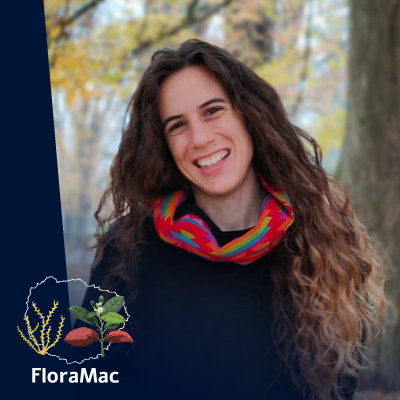
Yurena Arjona studied Biology at the University of La Laguna (2009), then she studied her master in Biodiversity and Conservation Biology at the University Pablo de Olavide, Seville (2010). In 2019, she got her Ph.D. from Rey Juan Carlos University, Madrid. During her Ph.D. she studied the role of dispersal syndromes in plant inter-island dispersal combining floristic and genomic approaches. During her postdoctoral research, she worked on metabarcoding of beetle communities and population genetics of beetle species as part of the Island Ecology and Evolution research team (IPNA-CSIC, 2019-2020). Since 2021, she works in the Botany, Ecology and Plant Physiology department (ULL) in collaboration with IPNA-CSIC studying the urgent problem of invasive species on islands from an evolutionary and functional perspective.
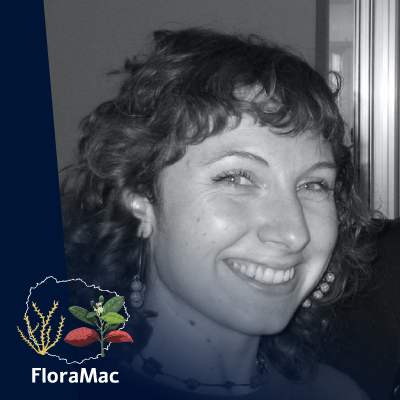
Doctor in Biology from the Universidade da Coruña (2010). After a postdoctoral stage at the Museum National d’Histoire Naturelle (Paris, France) and at Ghent University (Ghent, Belgium), I am currently part of the BioCost research group and I am a teacher in the Biology Degree and in the Interuniversity Masters in Marine Biology and Aquaculture at the University of Coruña. I am also Correspondent of the Museum National d´Histoire Naturelle. My research focuses on red coralline algae, a group of calcareous algae with a global distribution and great ecological relevance for their role as ecosystem engineers. I am interested in different aspects of this group, from its evolutionary history, taxonomy, diversity and chorology, etc. to broader aspects related to habitat conservation and climate change. My research tries to be multidisciplinary and requires numerous international and national collaborations. As part of my research activity I also collaborate with advisory tasks to different institutions and groups. I have co-directed 3 doctoral theses, one of them in progress. I frequently participate in scientific outreach activities in order to make visible the importance of this group of algae, as well as the role of women in Science.
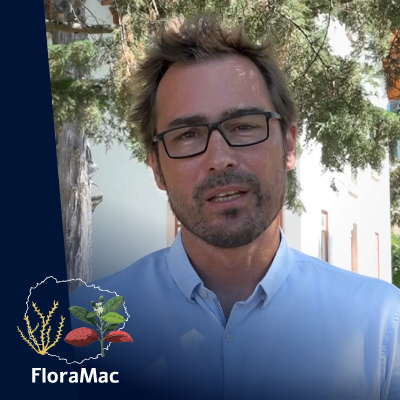
Ruben Heleno is an assistant professor at the University of Coimbra and a researcher of the Centre for Functional Ecology where he coordinates the Community Ecology Lab. He completed his PhD in the University of Bristol (UK) in 2009, and since then his main research interests have orbited around the study of ecological networks, seed dispersal, biogeography, biological invasions and restoration ecology. He published >75 ISI papers, 8 book chapters, supervised 18 MSc and PhD students, and he is the coordinator of the Masters in Ecology of the University of Coimbra. He participated in 15 research projects in the Azores, Galapagos, Mozambique, São Tomé, Seychelles and mainland Portugal. He’s a member of the direction board of the Portuguese Ecological Society and associate editor of the journal Functional Ecology.

Maria Romeiras (MR) has a PhD in Molecular Biology (University of Lisbon). Since 2017, is a Professor at Instituto Superior de Agronomia (School of Agriculture – ISA/ University of Lisbon). Currently, she is member of two research centres, “Linking Landscape, Environment, Agriculture and Food (LEAF/ISA)” and “Centre for Ecology, Evolution and Environmental Changes (cE3c/FCUL)”. In 2018, she joined the Academy of Sciences of Lisbon, and in 2019 she was distinguished by Ciência Viva (Portuguese Foundation for Science and Technology – FCT) in the book «Women in Science». Recently, she was invited to join the Vice-Chair of International network of “IUCN Species Survival Commission (SSC) Macaronesian Islands Plant SG (MIPSG)” to lead the Cabo Verde group. She has published over 20 book chapters and more than 70 peer-reviewed papers, and has participated in several research projects, being PI in 2 projects focused on the study of Macaronesia’s flora. Over the last years, she organized several field-expeditions, particularly in Cabo Verde and Angola. From 2010 to 2015, she was Deputy-Director of the Tropical Botanical Garden (IICT/UL) and recently, she was nominated curator of the plant collections of “Tapada da Ajuda Botanical Park / ISA”, which represents a unique natural space of local vegetation of great floral significance in Lisbon.
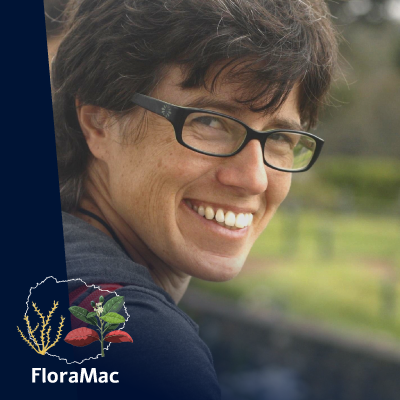
Oceanographer with more than 20 years of experience in marine ecology studies. She develops her research mainly in coastal systems, studying the ecological processes in marine benthic communities, analyzing the biotic interactions that are established between their components and the effects of various anthropogenic stressors, such as biological invasions, coastal urbanization or climate change. She has carried out part of her research at the Universidade dos Açores and the MARE-Marine and Environmental Sciences Center of Madeira, organizations with which she continues to collaborate. She is a founding partner of Hydrosphere, a spin-off from the University of Vigo, and is currently involved in the optimization of marine macroalgae cultivation protocols.
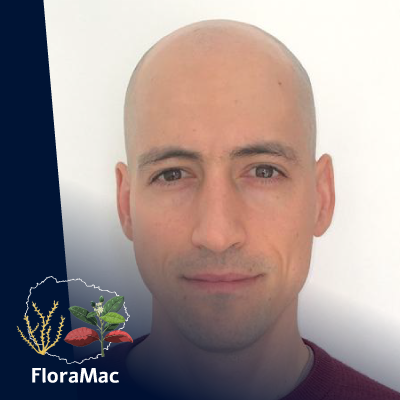
Christophe Vieira is currently a postdoctoral fellow at Jeju National University in South Korea. His research work initially focused on seaweeds ecology in coral reef systems, and expanded to the study of seaweeds diversity, taxonomy, phylogenetics, biogeography and evolution. His research uses molecular, morphological, ecological and geographical data to study seaweeds global biodiversity, historical biogeography, and evolution, with a focus on brown algae. He has largely contributed to our knowledge on the global diversity and biogeography of a tropical/warm-temperate algal group, including in the Macaronesian region. His current main interest dwells in elucidating the historical processes that shaped current diversity patterns of seaweeds. To this end he keeps documenting seaweeds biodiversity, geography, and works on resolving robust phylogenetic relationships using phylogenomic data.
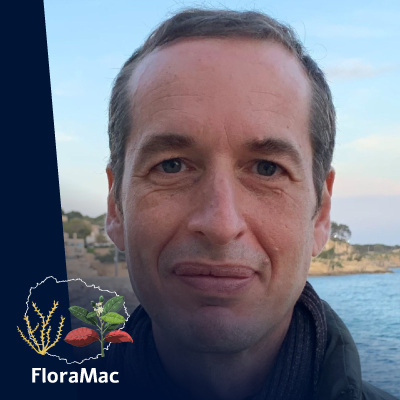
Carlos García-Verdugo is a botanist with a strong interest in the evolutionary processes and mechanisms that shape plant biodiversity patterns, particularly those operating at the intersection between macro- and microevolutionary scales. His research seeks to integrate complementary sources of evidence (mostly molecular, field and common garden data, but also meta-analysis) focusing on Macaronesian and Mediterranean plants.
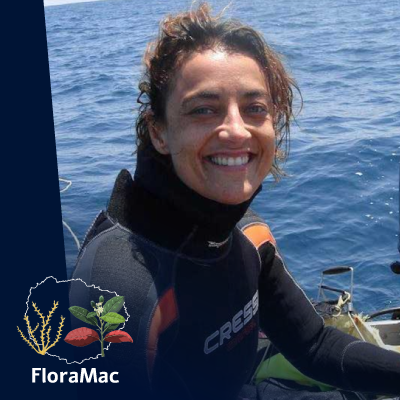
Brezo Díaz-Caneja martínez is a marine ecologist with a particular interest in investigating the environmental factors that determine the distribution of species. My line of research focuses on the study of the ecophysiological and demographic responses of threatened species at their distribution limits. Much of my work has involved the development of species distribution models in future scenarios, sometimes combining laboratory experimentation (obtaining tolerance thresholds) with modeling. Parallel to my research, and since 2003, I teach at the URJC in the degree in Biology and the Degree in Environmental Sciences. At this University I actively participate in the training of new researchers. I have also actively collaborated with the Spanish Society of Phycology, where I have been part of its board of directors.
If you wish to contact the technical secretariat of the conference, send your questions to floramac2022@gmail.com.




